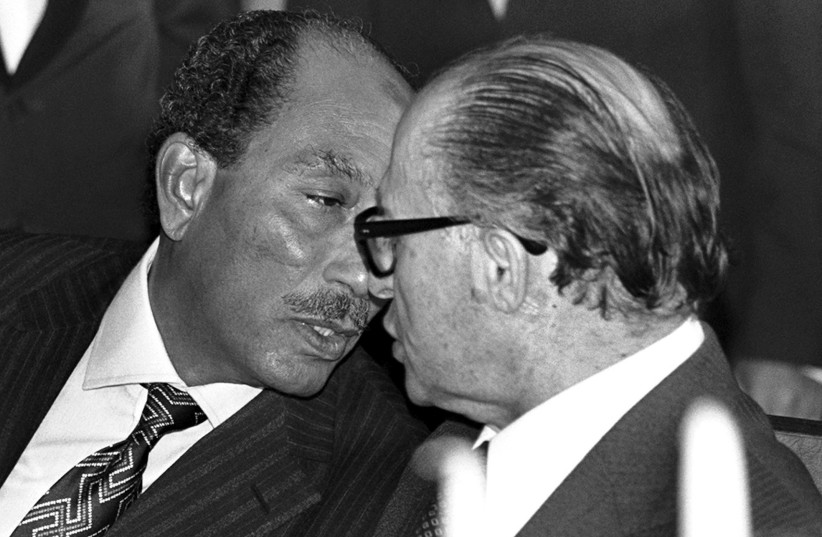The issue of Jerusalem at Camp David is not a well-known subject. In fact, when I applied for a research grant and mentioned this issue as one of the topics on which I plan to do research, my application was rejected. The reason was that a prominent political scientist had said that the Jerusalem issue never arose at Camp David. But the fact is, that this issue, at the last minute, nearly capsized the entire agreement. The facts are as follows:
During the course of the discussions at Camp David between prime minister Menachem Begin, Egyptian president Anwar Sadat and US president Jimmy Carter, in early September 1978, there was a common understanding that Jerusalem should be a unified city with access for all to the holy shrines of each religion. The administration of each holy site would be handled by the representatives of that faith. This arrangement was very pleasing to the Israelis since it left the general Israeli administration of the city undisturbed. In Moshe Dayan’s words: “We were very happy.”
In his book Keeping Faith, Carter records that Begin “deeply appreciated” the paragraph on Jerusalem, and that Sadat had also accepted it. But on the next to the last day of the conference Sadat demanded that Carter supply him with a letter declaring that for the United States, ”east Jerusalem was part of the West Bank.” Carter was not prepared to give Sadat all that he demanded since Washington had never agreed to include east Jerusalem as part of the West Bank. At the most the United States had said that east Jerusalem was “occupied territory” and subject to the international law of occupied territories.
In a real sense, Carter was proposing two opposites. The Jerusalem paragraph in the text of the Camp David agreement defined Jerusalem as a unified city, while the proposed letter to Sadat made Jerusalem subject to division under international law. At the beginning of the conference, Carter had promised both parties that he would not keep secrets from either side. Here, however, he was about to repudiate what the Jerusalem paragraph implicitly confirmed – continued Israeli administration of the entire city.

Once the Israelis learned of Carter’s proposed letter to Sadat, they declared they would not sign any agreement to which was attached a letter describing east Jerusalem as “occupied territory.” Begin ordered them to pack their bags. In a person-to-person meeting, Begin related to Carter the story of Rabbi Amnon of Mainz who had constantly rejected the demands of the bishop that he convert to Christianity. On one occasion, he asked for time to think things over. Upon arriving home, the rabbi was full of anguish that he had allowed the bishop to think for even a moment that he could convert. He refused to return to the bishop and was punished by having his hands and feet cut off. He was brought into the synagogue on Yom Kippur and composed the solemn prayer of Unetanah Tokef before dying. Begin said to Carter: “If I let you think for a moment that Israel will ever entertain the possibility of a divided Jerusalem, I would be guilty of the terrible mistake of Rabbi Amnon.” Jerusalem, Begin said, is the undivided capital of Israel and will remain such forever.
Carter realized that Begin was the immovable object and that a change must be made. The Jerusalem clause was removed from the text of the agreement and instead, each state attached a letter to the agreement defining its position on Jerusalem. Carter’s letter simply stated that the position of the United States on the subject of Jerusalem was as presented to the UN by ambassadors Goldberg and Yost. Carter did not realize that the Goldberg position was that Jerusalem was not occupied territory while that of Yost described east Jerusalem as occupied – although even he never bracketed east Jerusalem with the West Bank. Begin’s letter simply stated: “Jerusalem is one city, indivisible, the capital of the State of Israel.”
The writer is the James G. McDonald Professor of American History, Emeritus, at the Hebrew University, and author of the book: Jerusalem in America’s Foreign Policy (The Hague: Kluwer Law International, 1998). An updated version is due next year.
